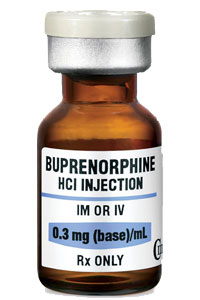17 Dec 2013
Promises Austin Luxury Rehab
Promises Austin is a luxury rehab center just outside Austin, Texas that treats men and women ages 26 and older who are looking for the most advanced and effective treatment available for addiction and co-occurring mental health disorders. We are able to provide extraordinary personal attention and a superior staff-to-client ratio because we treat a maximum of 24 clients at a time.
Located on a private, nine-acre estate nestled in the scenic Texas Hill Country, Promises Austin is a Joint Commission-accredited luxury rehab. Our programs are comprehensive, customized, evidence-based and effective, encompassing everything from medical detox to 35- and 60-day addiction treatment programs. We provide personalized treatment plans that are designed to address our clients’ physical, mental, emotional and spiritual needs.
At Promises Austin, we recognize that depression, anxiety, trauma and other mental health issues often accompany substance abuse. Our team of experienced counselors, a physician, and 24-hour nursing staff addresses these underlying issues during rehab.

Unique Addiction Treatment Programs
What can you expect during your stay at Promises Austin? Our approach includes more than a dozen holistic and traditional therapies merged into one luxury rehab experience. Our goal is to help you heal. Our addiction treatment programs offer a variety of therapies including:
- Acupuncture
- Aqua Therapy
- Drum Circles
- Eye Movement Desensitization and Reprocessing (EMDR)
- Integrative Breathwork
- Expressive Art Therapy
- Labyrinth
- Massage Therapy
- Medicine Wheel
- Personal Training
- Psychodrama
- Recreation Therapy
- Yoga
When you come to Promises Austin, you enter a luxury rehab center that is part of the Promises nationwide family of addiction treatment facilities. This means that each and every client receives Promises excellence – our promise to you.
After you leave Promises Austin, having completed your personalized addiction treatment program here in Texas, you’re not thrust out into the world with no resources. Our goal is to help you achieve lifelong sobriety. To that end, we provide one year of recovery coaching with your primary therapist so that clients who have completed the Promises Austin residential addiction treatment program may return for additional support as needed within the first year – at no cost.
Discover what it truly means to heal out here in Texas, call us today and begin your journey to recovery and freedom from addiction!
17 Mar 2013
Buprenorphine Treatment for Opioid Addiction
 Buprenorphine is a relatively weak opioid medication that doctors sometimes use to treat addictions to stronger legal and illegal opioids such as oxycodone (OxyContin), codeine, and heroin. Like other opioids, buprenorphine achieves its effects in the body by attaching to specialized sites on nerve cells (neurons) throughout the body called opioid receptors. However, it produces much smaller mind-altering effects than commonly abused opioids, and people recovering from addictions to those drugs can use buprenorphine to gradually transition through the withdrawal process, rather than going through severe withdrawal symptoms. In order to reduce any risks for inappropriate use, some forms of buprenorphine come combined with another drug called naloxone.
Buprenorphine is a relatively weak opioid medication that doctors sometimes use to treat addictions to stronger legal and illegal opioids such as oxycodone (OxyContin), codeine, and heroin. Like other opioids, buprenorphine achieves its effects in the body by attaching to specialized sites on nerve cells (neurons) throughout the body called opioid receptors. However, it produces much smaller mind-altering effects than commonly abused opioids, and people recovering from addictions to those drugs can use buprenorphine to gradually transition through the withdrawal process, rather than going through severe withdrawal symptoms. In order to reduce any risks for inappropriate use, some forms of buprenorphine come combined with another drug called naloxone.
Read More
Since 2005, nine people have died at the Narconon Arrowhead center in Oklahoma, and three of them have been in the last year. The rehab center helps clients through withdrawal according to the “Purification Rundown” procedure developed by Scientology founder L. Ron Hubbard. This is a scientifically-challenged, non-medical approach to detoxification, and the entire rehabilitation process has been widely criticized for indoctrinating individuals into Scientology. The three recent deaths at the premier Narconon center have spawned an investigation and a spate of lawsuits, and the results may spell doom for the unproven and ineffective school of rehabilitation.
Read More
Private drug addiction rehabilitation centers may become targets for violent Mexican drug gang activity. The problem in Mexico is growing worse, say officials, because members of drug gangs can enter unlicensed, private centers and locate rival gang members who are attempting to recover from their addictions. Some gang members use drug rehabilitation centers to further the drug trade or to find new gang members.


